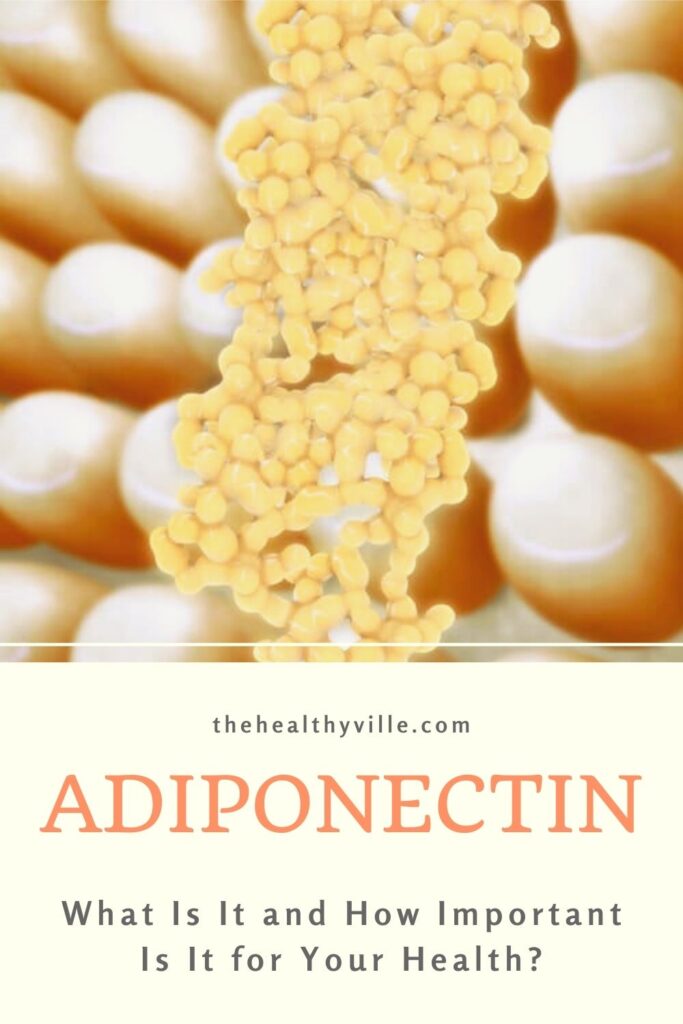Adiponectin is a protein synthesized and secreted by adipose tissue. Among other functions, it increases insulin sensitivity, reduces hepatic glucose synthesis, and promotes fatty acid oxidation.
As we know, the adipocyte is not only a cell that is responsible for storing fats and releasing them in the form of free fatty acids. It also produces a large number of substances known as adipocytokines. Among them is adiponectin.
It is a hormone that can lower the risk of cardiovascular disease. In terms of its structure, it is a protein. Its plasma concentrations in humans normally vary between 5 and 10 micrograms per milliliter.
There are many situations that can affect adiponectin concentrations. Likewise, the decrease in this hormone has been associated with genetic variations, hormonal factors, consumption of a diet high in sugars and many diseases. Among them we highlight some such as the following:
- Obesity.
- Insulin resistance.
- Type 2 diabetes.
- Alteration of lipids in the blood.
- Cardiovascular disease.
- Arterial hypertension.
What is the importance of adiponectin?
This hormone prevents foam cells from forming and smooth muscle cells from multiplying. In addition, it collaborates in the production of nitric oxide. The latter is essential to keep arterial walls and blood vessels healthy. In this way, it prevents atheroma plaque from forming and protects vascular health.
In the same way, it improves insulin resistance because it increases muscle and liver oxidation of fatty acids, decreases the production of glucose in the liver and favors its access to the muscles.
There’s a decrease of adiponectin levels obese people. Therefore, its anti-inflammatory effect also decreases. The mechanism by which this phenomenon occurs is not well known.
However, some studies claim that weight loss causes an elevation of this hormone. Furthermore, we must bear in mind that serum concentrations of adiponectin vary according to sex, age and race.
Where does it work?
The pathways through which this hormone exerts its action are different. It is important to know that your actions are multisystemic. Adiponectin has the ability to act on:
- Central nervous system.
- Liver.
- Pancreas.
- Heart.
- Blood vessels.
- Immune system.
- Musculoskeletal system.
- Adipose tissue.
- Kidneys.
Therapy against obesity
As we have already mentioned, due to its role as an anti-inflammatory and promoter of insulin sensitivity, as well as thanks to its cardioprotective and antiatherogenic effects, adiponectin represents an attractive therapeutic target against obesity and other associated metabolic problems.
According to the study published in 2017 in the journal Internal Medicine of Mexico, in preclinical models it has been shown that the administration of this hormone improves blood glucose and lipid concentrations. Likewise, it promotes weight loss, reduces fatty liver and reduces inflammatory processes. However, its clinical use in humans is complex.
How to increase its levels?
We must bear in mind that lifestyle changes are associated with increased blood concentrations of adiponectin. Following a Mediterranean-type diet represents an effective way to increase the activity of this protein.
Some of the foods that make up this diet are the following:
- Meals based on plants, with only small amounts of chicken and beef.
- More consumption of fresh fruits and vegetables, whole grains nuts, and legumes.
- Fish and shellfish.
- Olive oil as the main source of fat, without subjecting it to cooking. This oil is a healthy fat.
- Foods that are prepared and seasoned in a simple way, without sauces or industrialized meat juices.
- Red wine, consumed in moderate quantities.
Likewise, do not forget that weight loss and exercise are also necessary. In fact, it is important to eat a balanced diet and stay physically active.
What drugs can increase it?
In addition to the aforementioned, there are also drugs that increase their concentrations and promote their effects. In general, they are families of compounds doctors use for the treatment of diabetes mellitus 2 and cardiovascular diseases.
These medications include the following:
- Statins.
- Angiotensin converting enzyme inhibitors (ACEIs).
- Thiazolidinediones.
These drugs increase the production of adiponectin, raising its concentrations two to three times in healthy people, as well as in people with obesity and diabetes.
What should be clear about adiponectin?
Adiponectin has a role in health protective processes. However, in overweight and obese people there’s a decrease in their serum concentrations; therefore, its anti-inflammatory and cardioprotective function also diminishes.
It is essential to lead an active life, based on physical exercise and a healthy diet. Thus, adiponectin concentrations will increase, its benefits will be enhanced and we will protect cardiovascular health.
Don’t forget to SHARE everything you know about this protein with your friends and family on your social networks!

